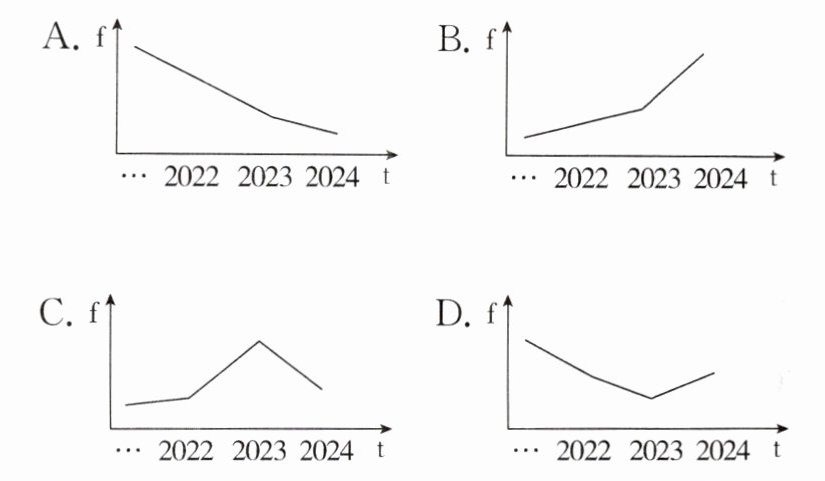Ⅴ.阅读理解
Do you ever feel you can't think clearly after playing on the phones for too long? If you do, welcome to the world of “brain rot (脑腐)”!
The phrase first appeared in the book Walden in 1854, but now it specifically refers to what happens when someone spends too much time online. The frequency (频率) of people using the phrase keeps growing these years. In 2024, the Oxford even named it Word of the Year.
So what will happen if you have brain rot? Well, sometimes it seems like your brain is a blank for a while. For example, you start forgetting things that happened just now. You might find yourself walking into a room and forgetting why you're there. Looking for a thing that is just in your hand is another common symptom.
The bad sides go beyond those funny things. Brain rot can cause the loss of critical (批判的) thinking. Your emotions may experience ups and downs more often.
But don't be afraid! Solving the problem doesn't need any expensive medicine. Start by cutting down your screen time. Remember, living without your smartphone for a few hours won't be too hard. Try to take a break to enjoy the real world. You can join in physical activities, read real books (not the videos that can let you read one in 3 minutes), and talk to real persons face-to-face.
Just like a garden needs care to grow healthy plants, your brain needs good habits to stay strong. Take care of it, so that more beautiful flowers of creativity and happiness can bloom (盛开) inside!
1. 跨学科 数学 Which of the following shows the use of “brain rot” these years? (“f” means the frequency and “t” means time)
A. f↑
... 2022 2023 2024 t
B. f↑
... 2022 2023 2024 t
C. f↑
... 2022 2023 2024 t

2. 新考法 创新设问 What does the underlined word “blank” mean in the passage?
a. [adj.] Usually used in go blank. It means something in your head disappeared for no reason.
e.g. When I saw the beautiful girl, my mind just went blank.
b. [v.] If you blank, you can't remember what you had in mind before.
e.g. I just blanked in the exam.
c. [n.] A space without words or pictures on a piece of paper.
e.g. Please fill in the blank after reading the passage.
d. [n.] Used to say a situation when you forget something.
e.g. I tried to think of his name but my mind was a blank.
A. a.
B. b.
C. c.
D. d.
3. What can we learn from the passage?
A. Brain rot appeared in 2024 as a new phrase.
B. Enjoying the real world is good for the brain.
C. It's very hard to solve the problem of brain rot.
D. Reading books in 3 minutes practises your brain.
4. What's the writer's purpose (目的) of writing this passage?
A. To tell people never to use the internet again.
B. To advise people to take care of their brain.
C. To share some popular words of the year 2024.
D. To explain the reasons why brain rot happens.